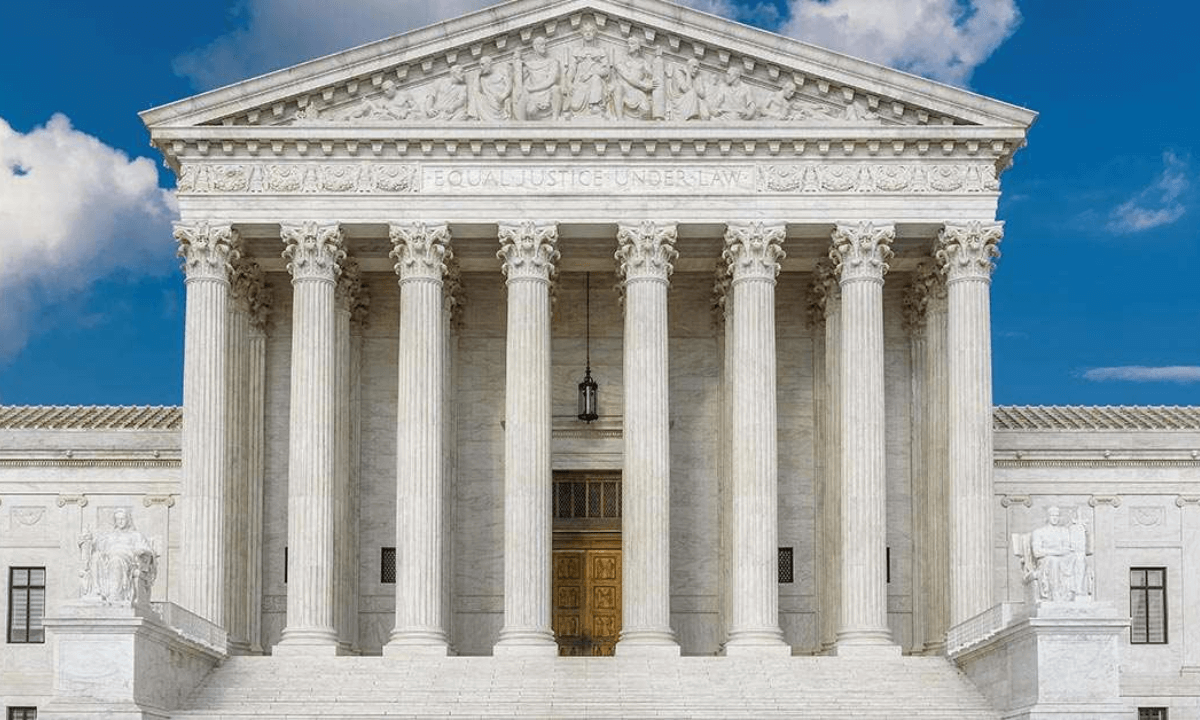 Justice Ruth Bader Ginsburg cited an amicus brief organized by Tracey George, who holds the Charles B. Cox III and Lucy D. Cox Family Chair in Law and Liberty, in her concurring opinion in Williams-Yulee v. Florida Bar. The Supreme Court’s 5-4 decision in Williams-Yulee v. Florida Bar, handed down April 29, upheld Florida’s ban on the personal solicitations of campaign funds by judicial candidates.
Justice Ruth Bader Ginsburg cited an amicus brief organized by Tracey George, who holds the Charles B. Cox III and Lucy D. Cox Family Chair in Law and Liberty, in her concurring opinion in Williams-Yulee v. Florida Bar. The Supreme Court’s 5-4 decision in Williams-Yulee v. Florida Bar, handed down April 29, upheld Florida’s ban on the personal solicitations of campaign funds by judicial candidates.
The case involved a challenge by Lanell Williams-Yulee, who ran for a Florida county court judgeship in September 2009 and was sanctioned and fined by the Florida Bar after she approved and signed a letter mass-mailed to potential voters personally soliciting contributions to her judicial campaign.
Williams-Yulee challenged the sanction in court, claiming the Florida regulation barring judges from personally soliciting campaign donations was unconstitutional because it “limits a judicial candidate’s right to engage in free speech by prohibiting a judicial candidate from directly soliciting campaign contributions.” The Florida Supreme Court rejected Williams-Yulee’s claim, and she appealed to the Supreme Court, asking it to declare the Florida regulation and similar rules governing judicial conduct in other states in violation of the First Amendment.
The Supreme Court granted certiorari to address the question of whether rules of judicial conduct that prohibit judicial candidates from personally requesting campaign contributions violate their First Amendment rights.
In the majority opinion, written by Chief Justice John Roberts, the Court stated that “[A] State’s interest in preserving public confidence in the integrity of its judiciary extends beyond its interest in preventing the appearance of corruption in legislative and executive elections.” As a result, “States may regulate judicial elections differently than they regulate political elections, because the role of judges differs from the role of politicians.”
Justice Ginsburg wrote a concurring opinion, joined by Justice Stephen Breyer, in which she cited and quoted the amicus brief filed by Professors of Law, Economics and Political Science organized by Professor George to support her point that “Disproportionate spending to influence court judgments threatens both the appearance and actuality of judicial independence. Numerous studies report that the money pressure groups spend on judicial elections ‘can affect judicial decision-making across a broad range of cases.’”
Justice Breyer also filed a concurring opinion, and Justice Antonin Scalia wrote a dissenting opinion in which he was joined by Justice Clarence Thomas, with Justice Anthony Kennedy and Samuel Alito filing separate dissents.
